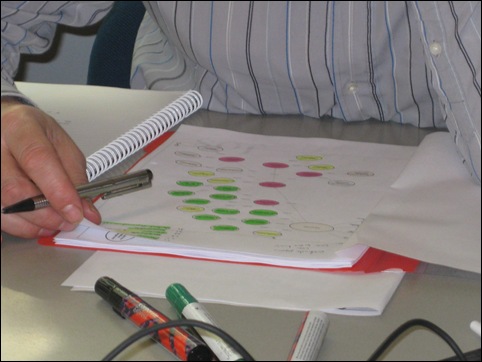About a week ago, someone (from the UK) send me an email with the following question:
I like your article on Smart Use Cases. Before I throw my hat in the ring on this, could you tell me your feelings on User Stories as an alternative to Use Cases?
To be quite honest, I’m not much in favor of using user stories. In my honest opinion, user stories are too unstructured to serve as a good unit of work in larger projects – although some projects actually benefit from having unstructured requirements. However, regular use cases are unsuited to, as they differ too much in both complexity and granularity. For example, I seen projects where implementing a single use case took several months. Not really handy in projects that are based on two week iterations.
The smart use cases I have proposed – and we have been using them for the last ten years, with ever growing success, are smaller, equally granular and more structured, but do not require much more elaboration than user stories. When it comes to larger projects, including for instance BI and service oriented projects, smart use cases much better reflect the mapping from business processes and workflows to software development.
Furthermore, to work on user stories in iterations in agile projects (or sprints if you prefer), the user stories are broken down into tasks. Unfortunately, since user stories can be very different in nature, so are the tasks. When we use smart use cases, the tasks are always similar, that is, we design, test design, build (and quite often generate), test, rework, accept or drop them. In most projects in an almost daily cycle (the Smart product cycle). The agile dashboard in our projects actually reflect these solid tasks, which makes planning them easier.
Another argument for preferring smart use cases over user stories, is that they can be estimated on an abstract scale rather than in hours. Important is that this estimation process is repeatable, and can be done by anyone (of course with some knowledge).
Over the years we have created a rich vocabulary of smart use case types, including types for maintenance, reporting, services, BI and file exchange. Applying this vocabulary (in stereotypes) allows for fast but structured requirements modeling.
Some links can help you further investigating this material:
- Smart use cases versus regular use cases. http://www.accelerateddeliveryplatform.com/SmartUseCase.ashx
- The agile Smart process. http://www.accelerateddeliveryplatform.com/SmartLifecycle.ashx
- Estimating smart use cases. http://www.accelerateddeliveryplatform.com/SmartEstimation.ashx
- Smart product life cycle. http://www.accelerateddeliveryplatform.com/SmartUseCaseCycle.ashx
- Smart use case stereotypes. http://www.accelerateddeliveryplatform.com/stereotypes.ashx
Love to hear your feedback and opinions.
